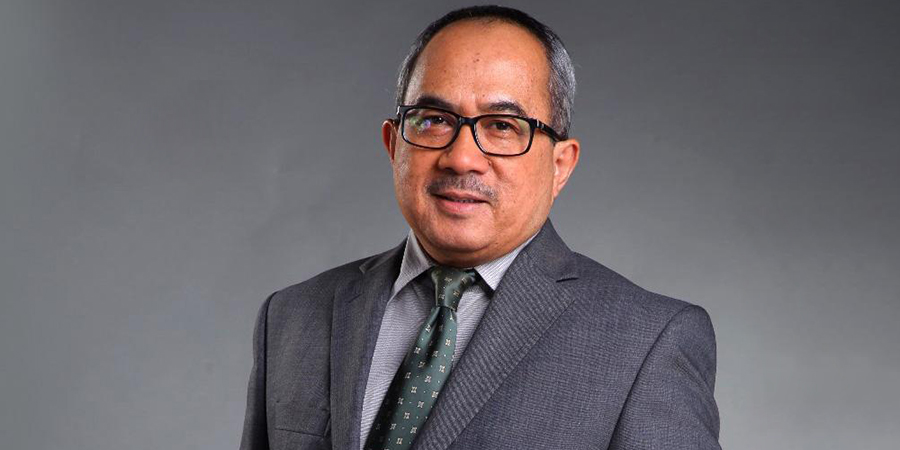Indonesia's digital economy is set to expand significantly, driven by the government's initiatives in supporting startups and small and medium enterprises (SMEs). The government has also established several collaborations with the private sector to strengthen the country’s digital economy.
In an exclusive interview with Telecom Review Asia Pacific at Asia Tech x Singapore 2024, H.E. Suryo Pratomo, Ambassador Extraordinary and Plenipotentiary of the Republic of Indonesia to the Republic of Singapore, discussed the current landscape of Indonesia’s digital economy and future plans to bridge the digital divide in the country.
Indonesia has shown significant progress in the digital economy, which is evident in the rise of tech startups and digital services. Could you elaborate on the key strategies the government is implementing to support and sustain this growth?
The government alone cannot address the challenges at hand; that’s why it has established collaborations with the private sector. One of the key challenges in the digital economy focuses on how to improve the digital literacy of all individuals, especially those in small and medium enterprises (SMEs).
Literacy is very important in this sector and educational efforts are essential in enhancing our ability to succeed in the digital economic environment. Therefore, the government has set up education training centers in various ministries to provide individuals with the necessary skills to successfully engage in digital economic activities.
The government also offers financial assistance, acknowledging the role of funding in facilitating the involvement of SMEs in this field. Furthermore, efforts are focused on strengthening marketing initiatives.
An example of government initiatives is evident in the joint efforts carried out by the Ministry of Industry and the Ministry of Information and Communication, which actively participate with SMEs by supporting startups developed by universities here in Singapore to help startups in Indonesia.
The government must recognize the potential economic advantages that come with the progress of the digital economy. The digital economy, which was worth USD 80 billion in 2022, is expected to double to USD 150 billion next year. In fact, all the ASEAN members have agreed that if we push the digital economy further, it will reach USD 4 trillion.
The positive development of regional cooperation within ASEAN countries reflects the overall progress of the digital economy. Collaborations are being made both in Indonesia and other ASEAN countries to develop a strong and advanced digital sector in the region.
How are these initiatives expected to impact Indonesia's economic landscape in the next five to 10 years?
Currently, President-Elect, Prabowo Subianto, is trying to build upon the economic framework established by previous administrations. Over the last five years, our economic growth has averaged 5%, a figure that seems reasonable considering the prevailing global economic conditions.
However, President-Elect Prabowo aims to elevate this growth trajectory within the next two to three years of his presidency. During the New Order era, Indonesia’s economic growth sank below 7%, so the President is hoping that Indonesian economic expansion will reach around 7% over the next five years.
Indonesia is committed to ascending to the ranks of high-income economies. Our targets are set until 2040 to 2045, after which Indonesia’s economy is expected to be like Japan, the United States, and Europe. Failure to do so increases the likelihood of Indonesia remaining a middle-income nation. Consequently, President-Elect Prabowo is fully committed to enhancing economic growth over the next decade, recognizing its pivotal role in shaping Indonesia's future.
What measures is the Indonesia government taking to enhance digital infrastructure, bridge the digital divide and grow its ICT talent pool?
There are projects that the former President, Joko Widodo, has already done to achieve this goal, such as the connectivity of over 17,000 islands in Indonesia through projects like Palapa Ring. Through this initiative, we have successfully laid down fiber optic cables across the country, significantly improving internet speed and connectivity between islands.
Another recent development is the launch of the SATRIA-1 satellite, aimed at providing high-speed internet access. These efforts underline the importance of digital infrastructure. However, despite these advancements, a challenge persists in ensuring widespread digital literacy among Indonesia’s vast population of 270 million, many of whom are smartphone users.
To address this, the government has launched digital literacy programs, including a collaboration with IBM, to educate and empower around 450,000 Indonesians. Additionally, a partnership with Apple has resulted in the establishment of four Apple academies across the country.
Hopefully, these initiatives will succeed in bridging the divide and empowering more Indonesians to adopt the digital era.






